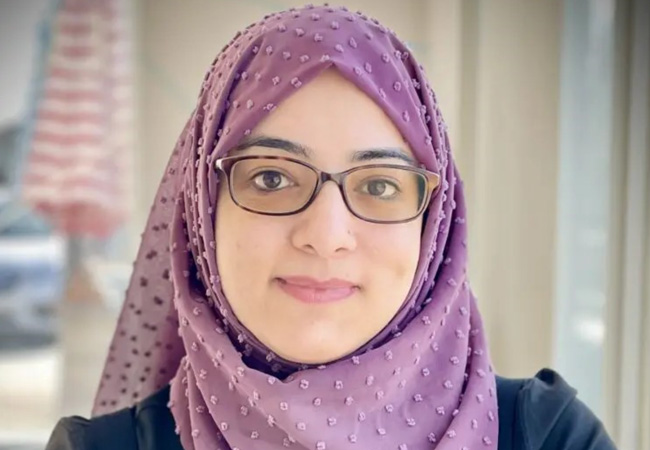
Just seven months after delivering the valedictory address at her 2024 convocation ceremony, Maimoona Batool succeeded in accomplishing the primary goal she first set for herself when she enrolled at Yorkville University – opening the doors to York Region’s first-ever play therapy centre.
It was an achievement the Master of Arts in Counselling Psychology (MACP) graduate and mother of three said was both deeply personal and professionally fulfilling.
“It’s a mix of feelings,” she said of establishing Batool Psychotherapy & Wellness – a Vaughan, Ontario psychotherapy and wellness practice, where she focuses on child and adolescent mental health, trauma, and empowerment.
“It’s excitement, it’s joy, it’s relief… sometimes it’s scary, too, but mostly I feel proud. It’s a feeling that I did it.”
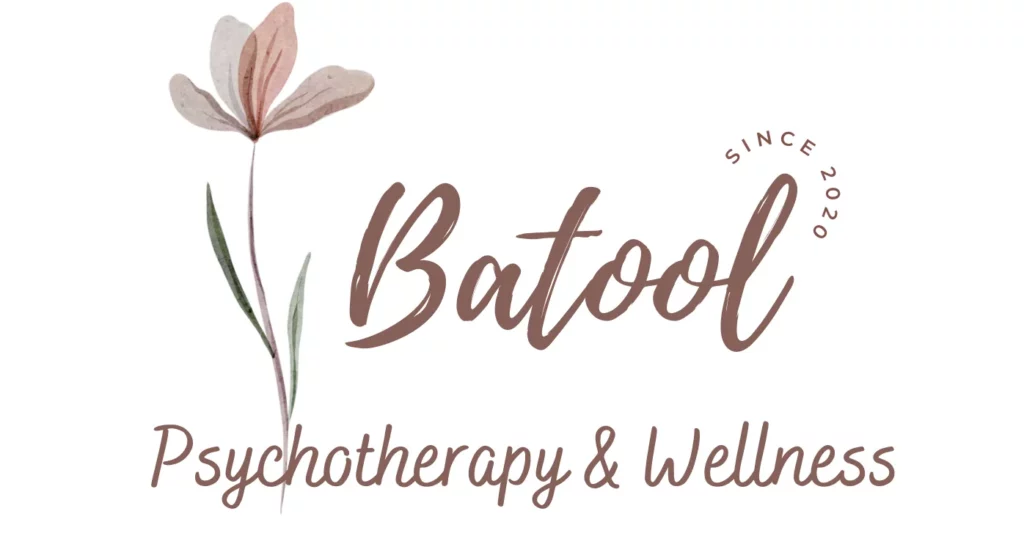
From Inspiration to Action
The seed of the idea for Batool Psychotherapy & Wellness was first planted during the early days of the COVID-19 pandemic. As both a mother and an Emergency and Forensic Nurse, Batool saw firsthand how the shift to online learning was amplifying the lack of supports available to children at the time.
“When one of my own children was recommended play therapy, I started looking around in our neighborhood and couldn’t find anywhere that offered it. That’s when I started researching play therapy as a mom,” she recalled.
“I looked into different kinds of ways it can be beneficial for children, I started reading books, and then I started trying to connect with my child in a different way…and I began seeing changes. And that’s when it kind of clicked for me and I realized the need in our community.”
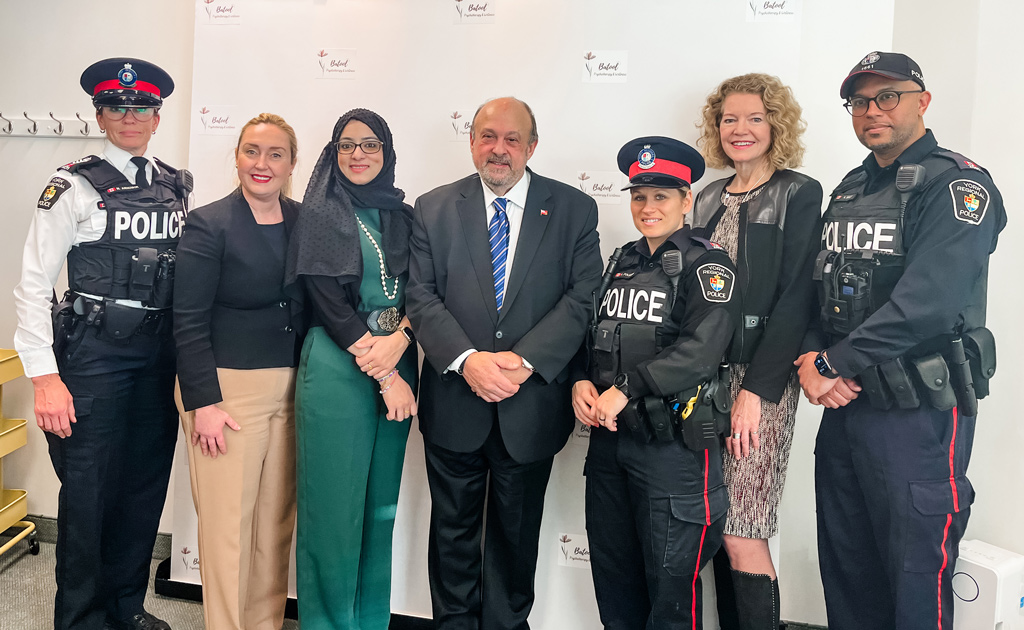
Opening Doors to Healing
In January, Batool’s vision became a reality with the open house for Batool Psychotherapy & Wellness, which marked its powerful introduction to her local community. Attendees included Ontario’s then Associate Minister of Mental Health and Addictions Michael Tibollo, York Region Police’s Youth Engagement team, and other local private practitioners, as well as some Yorkville University representatives, including Angela Antohi-Kominek, Principal & Vice President, Academic Ontario and Statia Elliot, Interim Principal & Vice President, Academic BC.
“My goal was to say: ‘We’re here, we’re part of this community, and we’re here to help,’” she said. “The children and youth and the younger population in our community really need to have that space to heal and feel supported and to grow, so it was important to me for people to see the centre and know they have somewhere to turn to.”
The centre offers more than just child therapy – its multidisciplinary team serves individuals, couples, and families across the lifespan. But the heart of the clinic, she said, lies in its play therapy services.
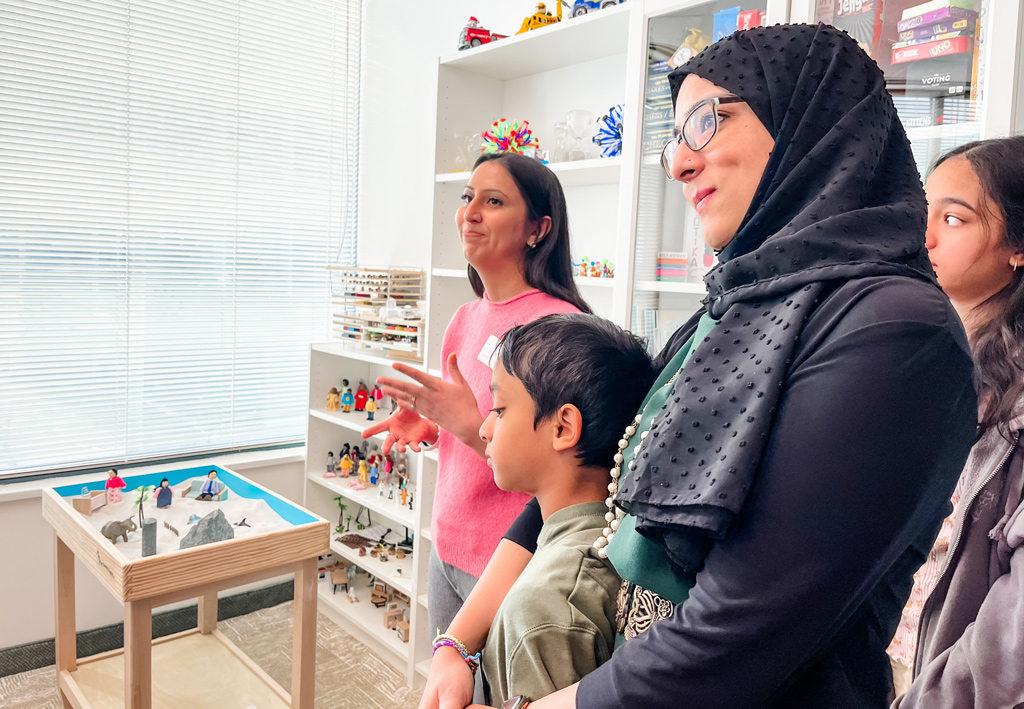
What Is Play Therapy?
Play therapy, Batool explained, is a form of communication that relies on symbolic, nonverbal expression – which is especially helpful for children who don’t always have the language to explain what they’re feeling.
“A child won’t always say, ‘I had a bad day,’ but they might ask to play,” she said. “And through play – whether it’s puppets, sand trays, or colouring – they can process what they’re experiencing. It creates a safe space for them to just be themselves.”
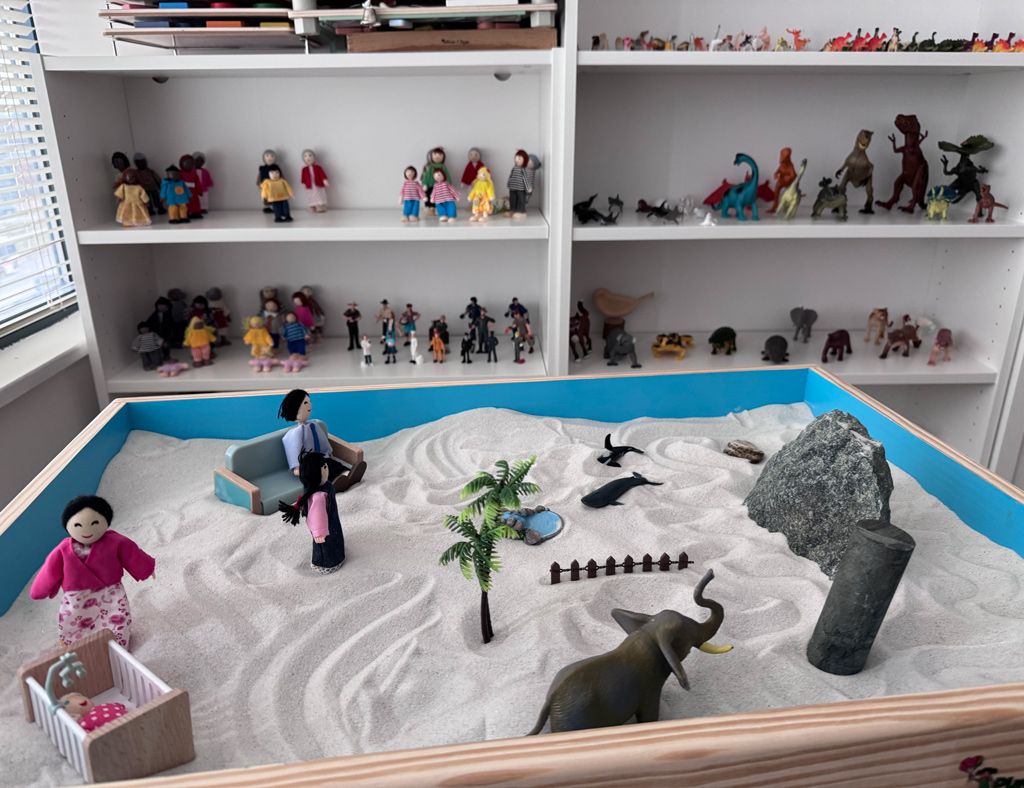
The Batool Psychotherapy & Wellness centre features a fully furnished play therapy room with elements like:
– A sand tray corner with miniature figures for world-building
– Dress-up costumes and dollhouses to explore identity and family dynamics
– Board games, Lego, crafts, and art stations
– Quiet spaces like an egg chair for sensory regulation
– Fidget toys and puzzles that support communication and connection
Batool said it’s a misconception that play is just for children, however.
“We have clients from age 3 to 71. Play isn’t just for kids. It’s about connection and using different tools to build a therapeutic relationship with someone – regardless of their age – who may not have the right words or ability to express what they’re going through,” she explained.
“For some adults, having a fidget toy or playing with cards or building a puzzle together and not making eye contact makes it less overwhelming to talk about something. You’re regulating yourself with your five senses, with tactile stimulation, while engaging in that conversation and playing at the same time.”
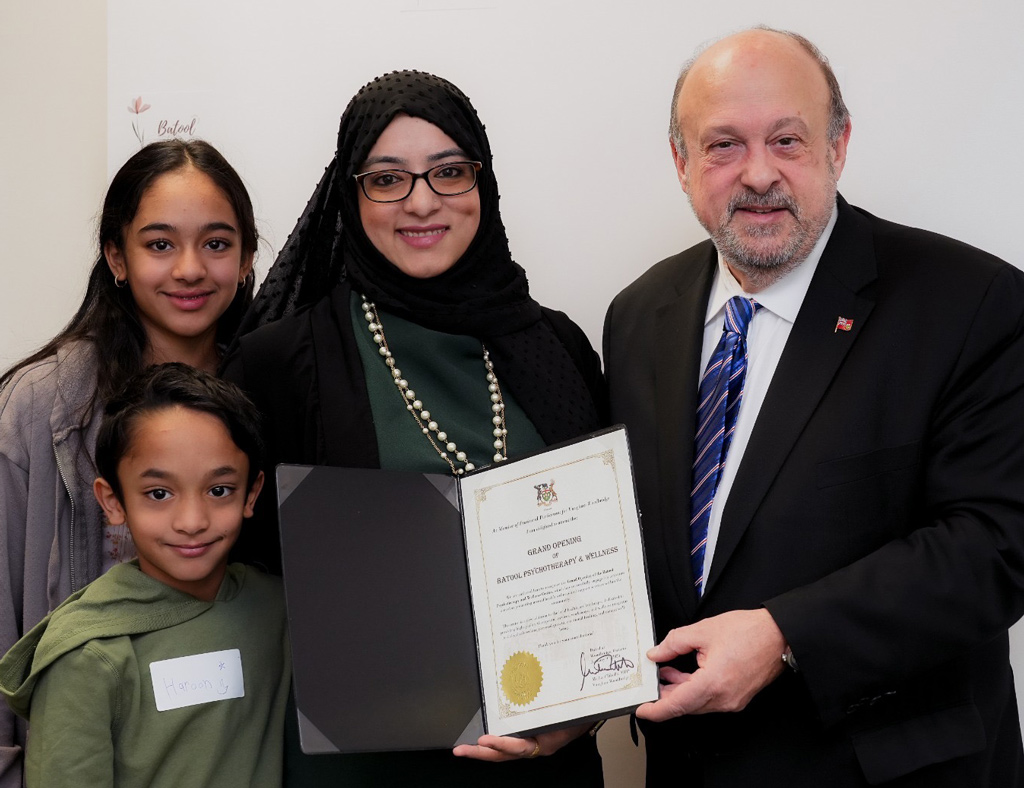
Impact in Action
One of the biggest impacts Batool has seen in her clients since the opening of the play therapy centre is its creation of a safe space for her clients. Parents are reporting that their children are learning to name their emotions and working to solve their own conflicts.
“Parents are noticing fewer nightmares and bedwetting incidents, less aggression, and better sibling relationships. We’re seeing real changes – relational, emotional, and behavioral,” Batool reported.
“The kiddos we work with are gaining a stronger inner self and a stronger sense of self – a sense of who I am, what I can do, what I cannot do.When (the play therapy is) done with families or siblings, they learn to trust each other.They learn to have that relationship with their family members while also respecting each other’s boundaries and working on relational attachment repair, if that’s what’s needed.
Batool has also been touched with how her own children – aged 8, 12 and 14 – have been interacting with and exploring the centre.
“They see it as a strength and say, ‘I have a clinic!’ It makes them feel connected, and oftentimes they just start playing with the toys here like it’s their second home,” she smiled.
“They always say, “We don’t want to go home. Can we just stay here?” It’s really nice for me to see that my own children find this space safe – whether I’m here or not.”

Role of MACP Program
It was Batool’s personal experiences, combined with her MACP training, she said, that helped her crystallize her vision for a dedicated space for children, youth, and families to find healing through play.
Her studies at Yorkville, she said, laid the groundwork for the litany of certifications she earned from the Canadian Association for Play Therapy following her graduation.
“Yorkville really helped by providing a comprehensive foundational approach to psychotherapy. From the core counselling skills, to building an ethical framework and learning how to work within that framework under your professional college – it all laid the groundwork,” she said, noting that Yorkville also taught her how to provide a culturally adaptive, safe space for clients.
And, of course, Batool wouldn’t have been able to earn her degree at all had it not been for the flexible nature of Yorkville’s online MACP program.
“With my busy nursing schedule, plus being a full-time mom, it often felt like there weren’t enough hours in the day to study,” she said. “Having that flexibility allowed me to meet my goals in a way that worked for me. I could get things done when I had the time.”
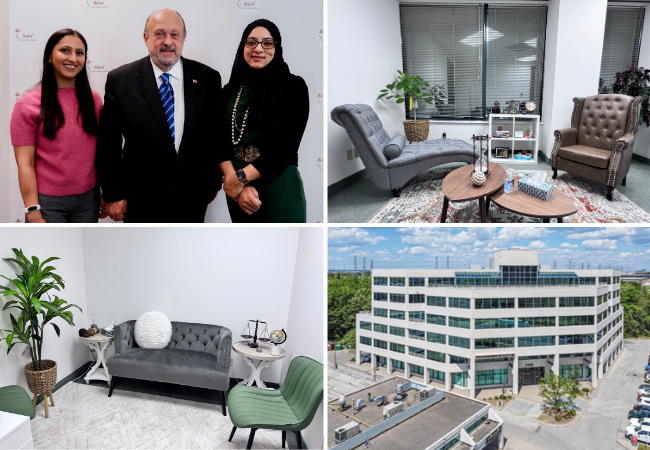
Advice for Future Therapists
For current MACP students dreaming of a similar path, Batool’s advice is clear: “Start with the end in mind. Know where you want to be, and then work backwards to find your path.”
She recommends seeking further training in areas like Theraplay, sand tray therapy, or narrative play – and leaning into your own strengths.
“Trust the process. Stay consistent,” she said. “You don’t have to know everything when you graduate, but you do have to stay curious and keep growing.”
To learn more about Batool Psychotherapy & Wellness and the wide range of services it offers to both children and adults, visit the centre’s website, Instagram or Facebook page.






